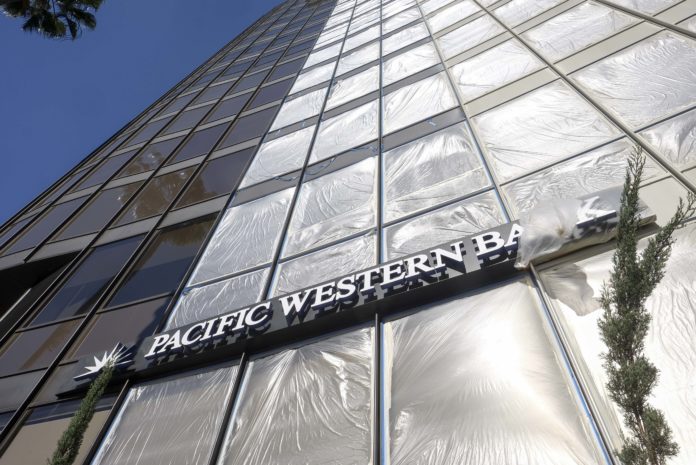Beverly Hills-based PacWest Bancorp, the parent of Pacific Western Bank, priced a $400 million subordinated debt offering to take advantage of low interest rates and invest in the bank's future.
A subordinated debt offering is usually conducted as a private placement with investors. The offering is expected to close on April 30.
The bank said it intends to use the proceeds of the offering for general corporate purposes, including to provide capital to “support growth” and the “capital adequacy of the bank.”
Subordinated debt can be an attractive option to replenish capital or finance growth. The Covid-19 pandemic and economic downturn strained the U.S. banking system at a time when banks have been grappling with ways to modernize their products and services.
Banks issue subordinated debt for various reasons, including shoring up capital, funding investments in technology, acquisitions or other opportunities, and replacing higher-cost capital. In the current low-interest rate environment, subordinated debt can be relatively inexpensive capital.
In the case of PacWest, it is raising $400 million at a 3.25% fixed rate through May 1, 2026. The notes, which will bear interest at a floating rate after 2026, are due in 2031.
“They are simply looking for long-term financing, with interest rates being relatively low historically,” said Chris Marinac, co-founder and director of research at Atlanta-based FIG Partners, an investment banking arm of Janney Montgomery Scott in Philadelphia. “It’s always possible that they’re raising money for an acquisition. They already have a lot of cash already.”
In early April, PacWest purchased MUFG Union Bank’s homeowners banking services unit for $250 million in cash, catapulting PacWest into the top ranks of the HOA field.
An HOA, or homeowner’s association, is an organization within a subdivision, planned community or condominium building that makes and enforces rules for the properties and its residents. Those who purchase property with an HOA jurisdiction automatically become members and are required to pay fees.
An HOA banking practice provides lockbox, electronic receivables processing and other financial services to HOA management companies.
Industry analysts expect the HOA banking niche to see a runup in profits as interest rates move higher when the economy emerges from the recession caused by the coronavirus pandemic.

